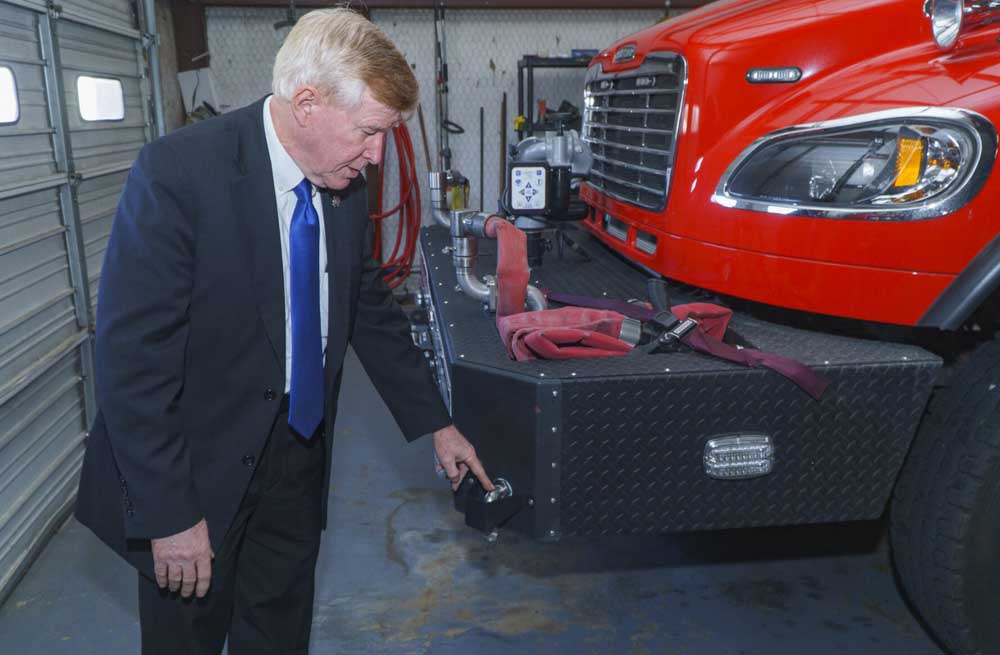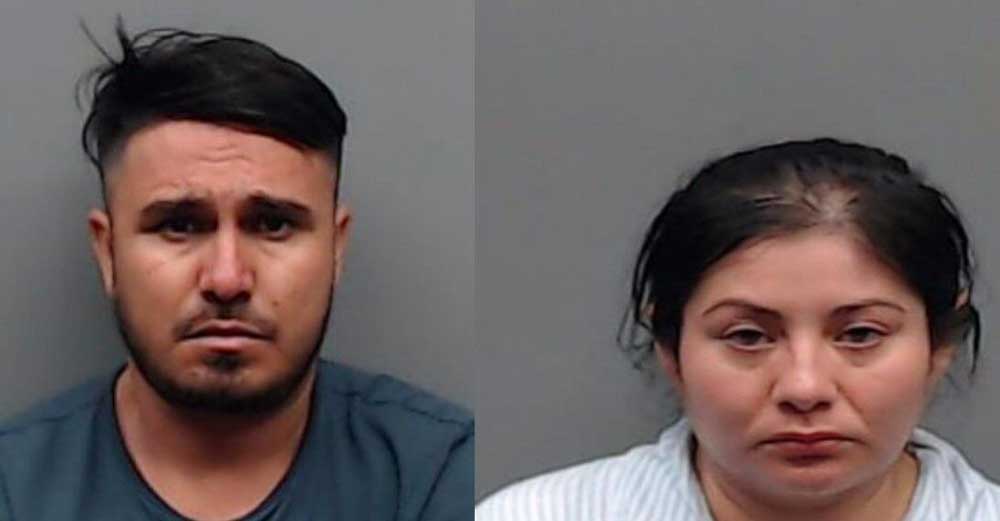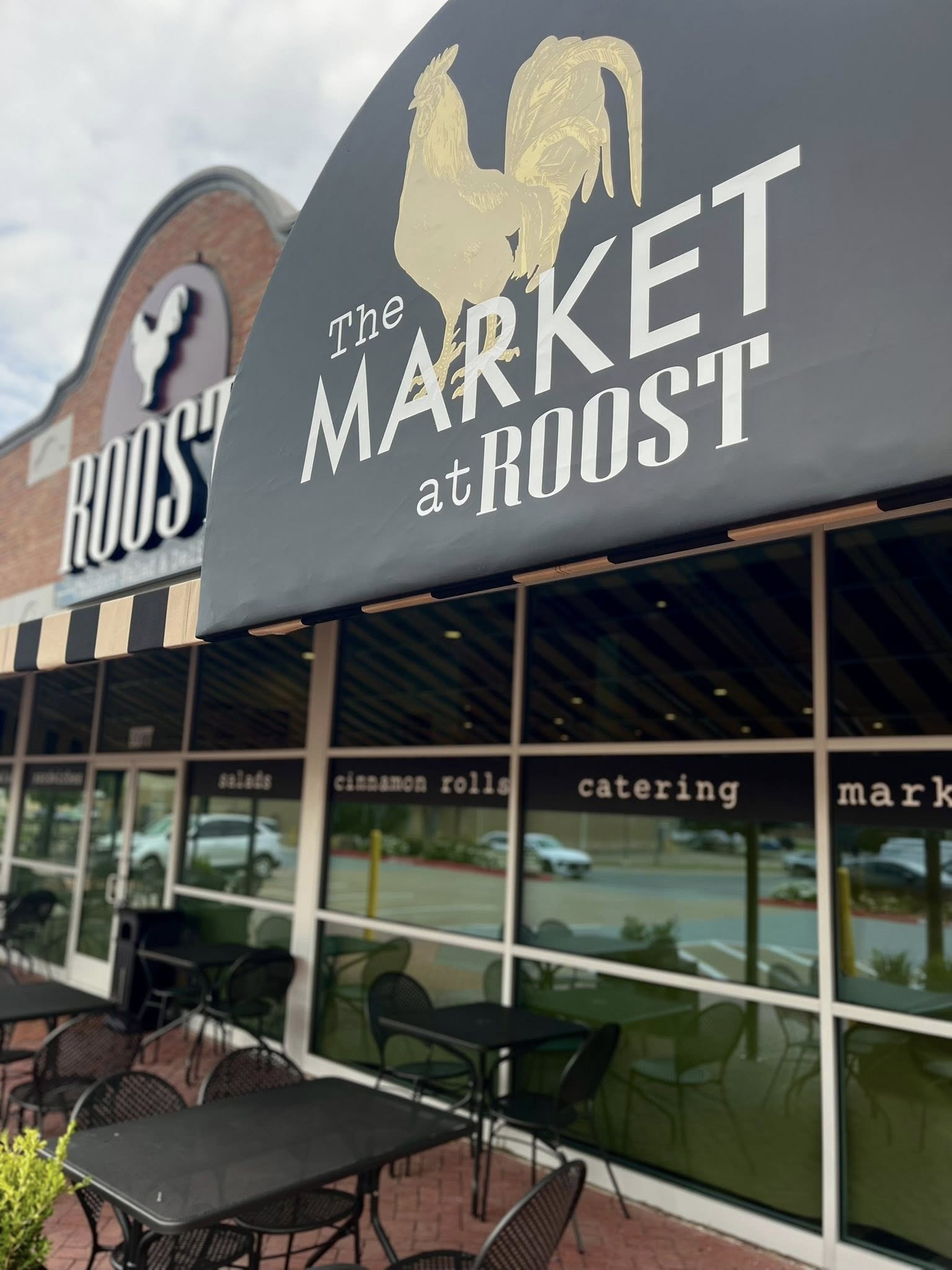After 58 years, East Texas mayor still has passion for fighting fires, teaching next generation
Published 5:35 am Tuesday, February 25, 2025

- Pittsburg Mayor David Abernathy discusses the features of a fire engine at the Pittsburg Fire Department Jan. 8. (Jordan Green/Longview News-Journal Photo)
PITTSBURG — To fans at the Super Bowl, the most exciting plans and plays are the ones that are put into action on the field. But behind the scenes, firefighters, police officers and paramedics spend a year or more developing complex strategies of their own.
The difference: They hope they don’t have to use theirs.
Trending
Any event that draws 100,000 or more people could be a target for a terrorist attack or could devolve into chaos if a major storm blows in. In 2004 and again in 2011, Pittsburg native David Abernathy’s job was to ensure that, no matter what happened at the biggest sporting event of the year, first responders would be ready to help people in need.
Abernathy helped manage emergency response measures for Super Bowl XXXVIII in Houston and Super Bowl XLV in Arlington. But he wouldn’t have found himself in those positions if he hadn’t started in a much humbler one: serving as a volunteer firefighter in his hometown of Pittsburg.
Now 73, Abernathy, the town’s mayor, uses his 58 years of experience to train first responders across the nation how to plan for the worst while hoping for the best.
“Everybody who does this type of business has a wanting to serve their community,” he said. “In my case, I’ve been fortunate enough to not only serve in my community, but also in the state and nation.”
Fighting his first fire
Some children only get to dream of becoming a firefighter. But Abernathy got to make his come true.
Trending
He was 5 or 6 years old when his father, D.H. Abernathy, started bringing him to the scenes of fires and letting him hold fire hoses — “way before the days of liability,” he said.
Though D.H. wasn’t a formal member of the Pittsburg Fire Department, he tagged along with firefighters and helped out on calls. He also was a mechanical engineer and built 10 fire engines for his hometown — eight with the help of his son.
All those years of hanging around firefighters proved fruitful for Abernathy. He became a firefighter at age 15 when the city’s only full-time firefighter asked him to fill in for him. He would race to the scene of the blaze, and department volunteers would meet him there as soon as they could.
He still remembers the first fire he responded to as the city’s lone on-duty firefighter: a structural fire at a restaurant known for boot-legging alcohol. He hopped in a fire engine, one he and his father had built for the city, and raced to the scene. The back of the building was fully engulfed in flames. Abernathy single-handedly extinguished the fire before volunteers arrived.
“My chest was sticking out. I had saved the day,” Abernathy said. “Until the chief of police came up there, and he got me off to the side. He said, ‘Why did you put this place out?’ He says, ‘We’ve been trying to close this place down.'”
Volunteers voted to make Abernathy a member of the department in 1967, and from there, he became a firefighter at Lone Star Steel during the summers while attending college.
Abernathy had a fair amount of experience by the time he applied for a job with the Texas A&M Forest Service in the late 1970s. He was turned down — told he was overqualified. But two years later, while he was working at the Pittsburg Gazette newspaper, a forestry service worker came by the office and offered him a job. He took it, and he stayed with the wildfire-fighting agency for 34 years.
But he did more than put out brush fires.
Training pays off
Abernathy and his colleagues at the forest service learned a thing or two about coordinating the efforts of first responders and preparing for disasters.
“We just traveled all over the state of Texas and ultimately started going to other states and helping them manage their disasters and recover from them,” he said.
That experience paid off back in the Lone Star State. When Hurricane Rita struck Texas in 2005, one month after Hurricane Katrina devastated Louisiana, Abernathy was at the state emergency operations center in Austin, the headquarters for disaster response efforts. He was in charge of restoring power throughout East Texas, a job complicated by a shortage of utility poles and, initially, a lack of cooperation between utility companies. (The threat of federal fines fixed that, however.)
Abernathy also found himself briefing the most important man in the room: then-President George W. Bush.
Little did the people in the building know that Bush and Abernathy had known each other for years. When he was governor, Bush appointed Abernathy to serve as presiding officer of the Texas Commission on Fire Protection, which sets standards for fire departments to operate under.
“Here he comes, walking in the door, and he sticks his hand out. He said, ‘Hey, David, how you doing?’ Well, that’s pretty slick,” Abernathy said.
His experience responding to a hurricane was bookended by his role in making Super Bowl preparations. Abernathy spent a year-and-a-half writing the state’s emergency response plan for the 2011 Super Bowl in Arlington, which detailed where first responders would be stationed, how they’d communicate and more.
Preparing for a Super Bowl is “its own animal,” Abernathy said. “Hundreds of millions of dollars are spent in taxpayer dollars getting ready for a Super Bowl or something of that magnitude.”
Abernathy teaches emergency management courses throughout the United States and North America, and he’s working with the Federal Emergency Management Agency to rewrite curriculum for training courses. It’s a job he thoroughly enjoys.
“I had a class the other day in Maine, northern Maine, and half the class were Canadians,” Abernathy said as he sat at the Pittsburg fire station one day in January. “Lord, those guys are wide open, full throttle. They were a hoot to work with. They were interested in the training, but they played hard.”
Abernathy and his father share some uncanny commonalities. Both were city councilmembers for five years before becoming Pittsburg’s mayor. And both have an unquenchable passion for firefighting.
Now, as a training instructor, Abernathy has a chance to share that with others.
“I’m just trying to pay it forward,” he said.
‘You’re the only game in town’
Training is a crucial element of firefighting. It’s one of the many tasks volunteers do on their own time.
Volunteers are never really off work. They’re on call 24 hours a day, seven days per week, to respond to people in need on the worst day of their lives — without pay. A volunteer fire department with 15 firefighters, on average, donates the equivalent of $1 million worth of free labor to a community every year — based on minimum wage, Abernathy said.
Time is only one sacrifice firefighters make. First responders encounter trauma and tragedy frequently, and the mental and emotional impact of it all can be exacerbated in a small town.
When firefighters and paramedics respond to a car wreck or some other kind of emergency, the likelihood that they know someone involved is greater in a small town, Abernathy said. They also can be exposed to more trauma than their counterparts in larger cities and less time to process it: Volunteers can be called upon seven days per week, while paid firefighters in larger towns generally have a day or two off between shifts.
About 30% of first responders develop post-traumatic stress disorder or other behavioral issues, according to the Substance Abuse and Mental Health Services Administration. First responders also have a higher risk of dying by suicide, according to a 2022 study.
Firefighter suicide is a real problem, Abernathy said. “Sometimes, it just adds up and adds up and adds up.”
Firefighters have to learn to deal with the stress and the trauma, Abernathy said. Despite the hardships of the job, someone’s got to do it. In a small town, “you’re the only game in town,” Abernathy said.
Volunteer fire departments across the nation are facing a shortage of volunteers. People’s lives are busy, and some people have to work two or more jobs to make ends meet. Societal values and the way people spend their time have changed, too.
“Before I got on the department here, there was actually a waiting list,” Abernathy said. “They maxed out on the number of volunteers that was in the charter here for the bylaws, and they had people on a waiting list to get on the department.”
But, as Abernathy said, “thank goodness” there are still people willing to give of themselves to do a job that many won’t.
“A volunteer firefighter out here is just volunteering to serve their community, but they have to have this really thick skin on them,” Abernathy said. “And I say ‘volunteer.’ It could be somebody’s full career. They’ve chosen that to do it, whether they’re a police officer, firefighter, emergency manager, EMS person, whatever they’ve chosen.”
‘It can be really, really rewarding’
Abernathy’s contributions to the fire service extend beyond the walls of a classroom — and beyond his hometown. While at the forestry service, Abernathy played a key role in developing Class A firefighting foam, a mixture of soap and water that is used around the world to combat brush fires.
He’s also carrying on his father’s passion for building fire trucks: Abernathy designs custom fire engines for a fire engine manufacturer.
Though being a volunteer firefighter comes with hardship, it might be the right fit for folks with a heart to serve their community, Abernathy said. A person doesn’t have to be physically fit to be a volunteer, either; a person in a wheelchair could be a dispatcher.
“It can be really, really rewarding, serving your community,” he said. “You’ll get to see and do some neat things out here, and that’s what I thrive on it. I enjoy right now going and helping as a volunteer firefighter as much as I did when I got on when I was 15. Hasn’t changed a bit.”
Though he’s watched people die in front of him, he’s helped deliver new babies into the world, too. Firefighting has given him a chance to serve people young and old, rich and poor, whether they’re from his hometown or not.
“I’ve tried to serve my community well,” Abernathy said. “There’s no doubt I’ve saved people’s lives — wouldn’t be here today if it weren’t for some of our interaction. Property, houses, whatnot wouldn’t be here today if we hadn’t intervened. So, we’ve made a difference in people’s lives, for sure.”






